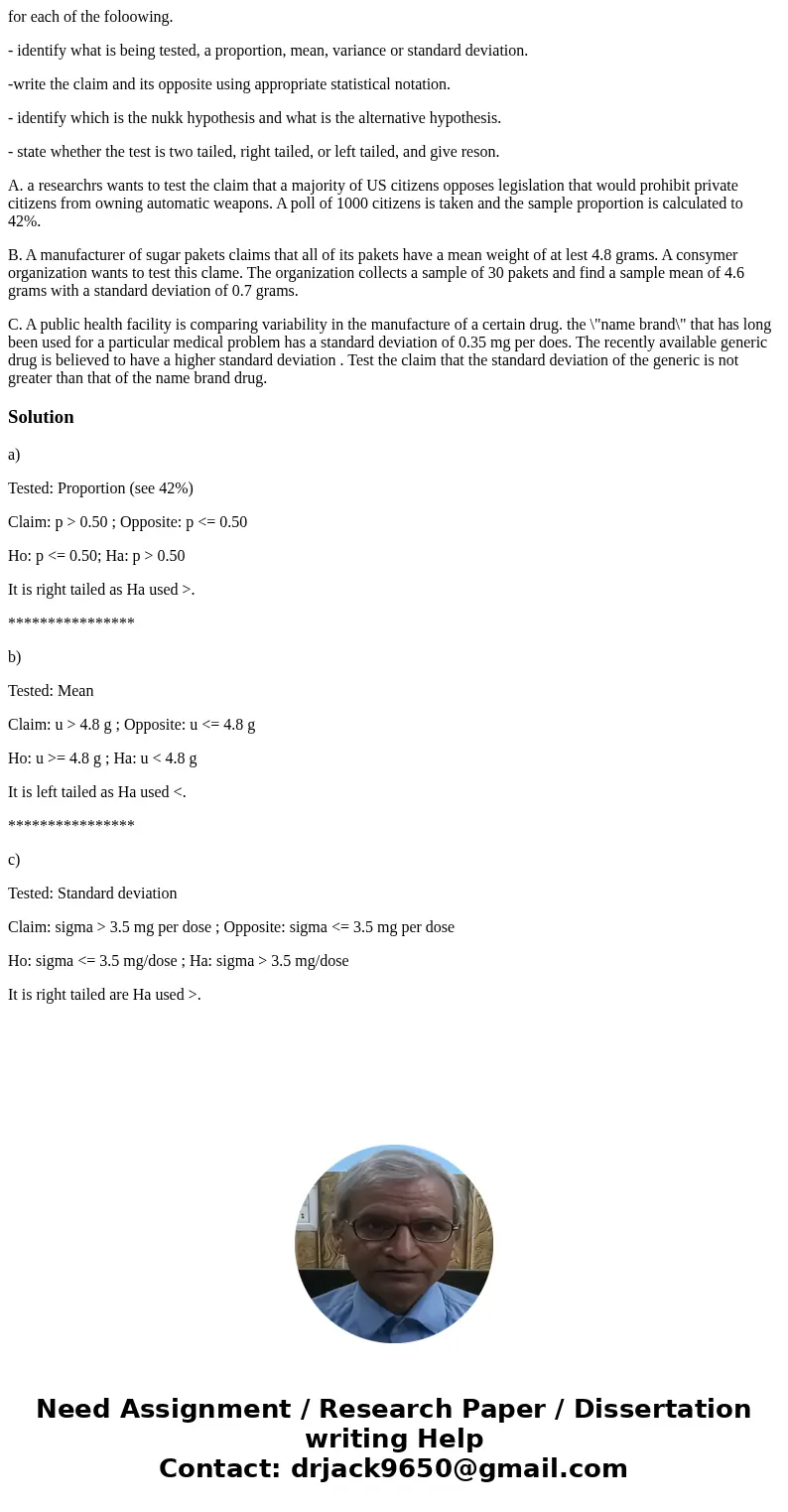for each of the foloowing identify what is being tested a p
for each of the foloowing.
- identify what is being tested, a proportion, mean, variance or standard deviation.
-write the claim and its opposite using appropriate statistical notation.
- identify which is the nukk hypothesis and what is the alternative hypothesis.
- state whether the test is two tailed, right tailed, or left tailed, and give reson.
A. a researchrs wants to test the claim that a majority of US citizens opposes legislation that would prohibit private citizens from owning automatic weapons. A poll of 1000 citizens is taken and the sample proportion is calculated to 42%.
B. A manufacturer of sugar pakets claims that all of its pakets have a mean weight of at lest 4.8 grams. A consymer organization wants to test this clame. The organization collects a sample of 30 pakets and find a sample mean of 4.6 grams with a standard deviation of 0.7 grams.
C. A public health facility is comparing variability in the manufacture of a certain drug. the \"name brand\" that has long been used for a particular medical problem has a standard deviation of 0.35 mg per does. The recently available generic drug is believed to have a higher standard deviation . Test the claim that the standard deviation of the generic is not greater than that of the name brand drug.
Solution
a)
Tested: Proportion (see 42%)
Claim: p > 0.50 ; Opposite: p <= 0.50
Ho: p <= 0.50; Ha: p > 0.50
It is right tailed as Ha used >.
****************
b)
Tested: Mean
Claim: u > 4.8 g ; Opposite: u <= 4.8 g
Ho: u >= 4.8 g ; Ha: u < 4.8 g
It is left tailed as Ha used <.
****************
c)
Tested: Standard deviation
Claim: sigma > 3.5 mg per dose ; Opposite: sigma <= 3.5 mg per dose
Ho: sigma <= 3.5 mg/dose ; Ha: sigma > 3.5 mg/dose
It is right tailed are Ha used >.

 Homework Sourse
Homework Sourse